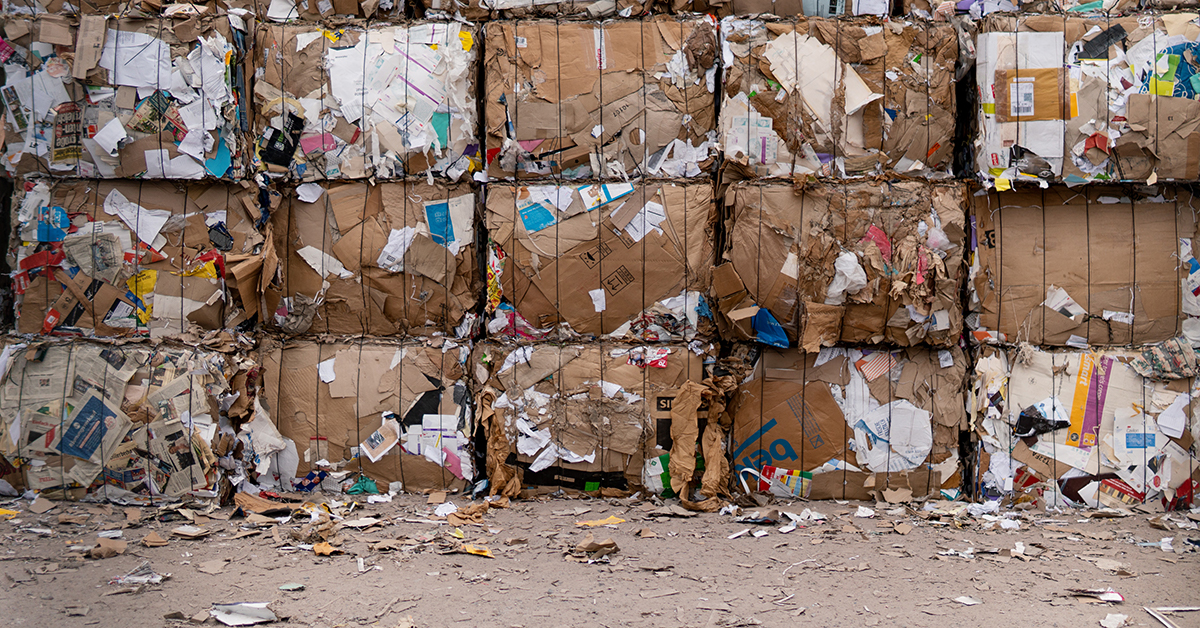
When improperly disposed of, industrial and other waste materials can have a huge impact on the environment, and they can be hazardous to anyone who may come into contact with them.
So using proper waste management protocols is not only responsible but is essential in reducing these types of negative impacts.
And for many businesses, that means using a commercial trash compactor.
There are many styles of trash compactors but two common types are RAM-style industrial units and rotary-style trash compactors. Rotary-style units are particularly popular since they are capable of compacting large amounts of trash into tidy, plastic polyethylene bags for easy, cost efficient disposal.
 No matter which model is being used, businesses should make their employees aware of safety standards as well as the various restrictions that apply to specific types of waste materials. Batteries and electronics are often banned by landfills for example, while toxic waste chemicals are subject to strict regulations and cannot be disposed of in a landfill unless special permission is granted.
No matter which model is being used, businesses should make their employees aware of safety standards as well as the various restrictions that apply to specific types of waste materials. Batteries and electronics are often banned by landfills for example, while toxic waste chemicals are subject to strict regulations and cannot be disposed of in a landfill unless special permission is granted.
Additionally, there are some limits as to the kinds of materials that are suitable for putting in a commercial trash compactor.
Let’s take a look at some common waste materials and whether they are appropriate for a commercial trash compactor.
Metals
While there are commercial compactors specifically designed to compress large metal pieces, most compactors are not designed to handle things like engine blocks or certain construction materials, as a result of their molecular density.
That said, the best trash compactors for processing certain metal sheets made of materials like aluminum are balers and general use rotary industrial compactors.
Wood
Many businesses use commercial compaction machines to condense wood fragments like sawdust and wood chips, as well as thin plywood pieces.
While wet sawdust can be compressed to a degree by any model, some compactors are better suited to this job. The KenBay RotoPac compactor is ideal for compressing large volumes of trash, including wood waste, and can achieve compaction ratios of greater than 6 to 1 thereby reducing commercial waste disposal costs up to 80%.
Liquids
Liquids alone cannot be compacted obviously, but wet waste can.
The majority of wet waste is produced by restaurants which typically use self-contained compactors to dispose of their trash. The KenBay RotoPac is ideal for this type of waste disposal method.
An added benefit? The KenBay RotoPac compresses waste into sealable trash compactor bags for ease of use and more efficient transporting. This method is ideal for compacting waste that is used to feed animals, and because the bags are sealable, odors can’t escape.
Toxic Waste and Chemicals
 There are a number of considerations with this type of commercial waste disposal.
There are a number of considerations with this type of commercial waste disposal.
- First, determining a hazardous waste rating is necessary to choose a container that meets regulatory requirements.
- Another consideration is to determine whether the waste is recyclable.
Once again, the KenBay RotoPac is ideal for compacting and transporting hazardous waste, and it can employ both UN rated bags and multi-walled fiber boxes which are ideal for responsible and efficient waste disposal.
The added benefit is that disposing of this type of waste in UN bags and boxes can offer a significant price advantage over the use of drums.
Plus, The RotoPac can be used in the dusty or gaseous environments that are typical when processing hazardous waste.
Burning or Smoldering Materials
The best practice here is very clear: under no circumstances should burning or smoldering materials be placed in a commercial trash compactor, regardless of its model.
Soil and Dirt
While it’s possible to process this type of waste using a commercial trash compactor, it’s not recommended. There is little to no value in doing so and you’re better off using soil, dirt, and gardening materials for compost.
Pet Waste and Diapers
Again, there is little to no value in compacting these types of materials. Instead, they should be placed in a bag and sealed to prevent odors from escaping.
Electronics and Batteries
E-waste cannot be compacted and should instead be taken to a specially designated collection site for proper disposal and recycling.
What Do The Authorities Say?
Commercial waste disposal compactors are a clean, efficient solution for processing trash in a cost-effective, responsible manner.
If you are unsure as to whether a particular material is suitable for a commercial compactor or how it should be disposed of, it is best to consult your local authorities.


